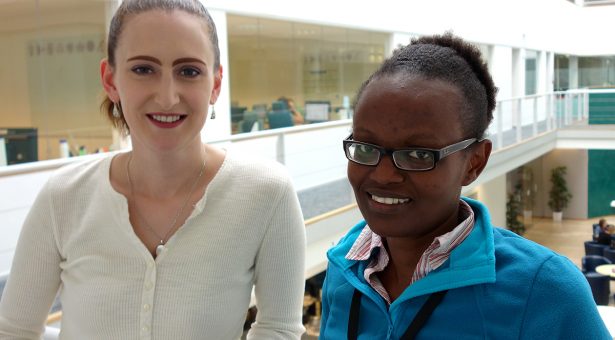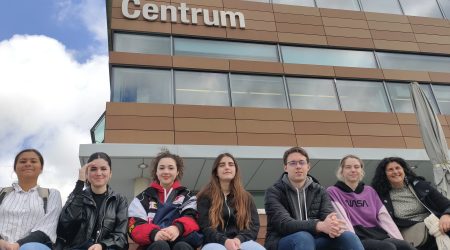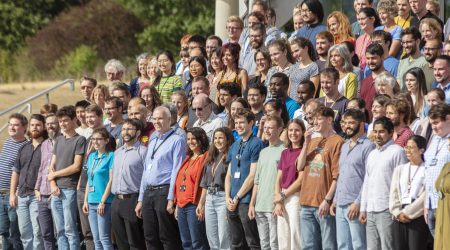Celebrating diversity and mentorship relationships in academia

At the John Innes Centre we value our diverse community and the contributions of all our staff and students.
The strength of our faculty and our diverse community creates a vibrant, dynamic and intellectually nurturing atmosphere for scientific discovery. In this environment we train the next generation of scientific leaders.
As an institute, we are passionate about nurturing inclusion and we endeavour to create a curiosity-driven approach to scientific learning.
We are shocked and dismayed at the recent article published in Nature Communications by AlShebli et al, ‘The association between early career informal mentorship in academic collaborations and junior author performance’ on the 17 November 2020. Articles like this have no place in our scientific community.
We’re proud that our staff and students, past and present, include many exceptional female scientists who have not only made ground-breaking discoveries in their fields but have also contributed to the career development of generations of scientists, technicians, students and support staff.
Director of the John Innes Centre, Professor Dale Sanders; “In research, breakthroughs come from teams of people working collaboratively to further our understanding of the world. Diversity enriches the creativity and insight of research groups. Equality of opportunity is key in achieving our mission and I believe that mentoring plays a valuable role enabling and empowering individuals to reach their full potential”.
Dr Carole Thomas, Chair of our Inclusivity & Diversity Committee and lead for Athena SWAN; “People are at the heart of the John Innes Centre and it is thorough the commitment of our diverse staff and student communities that we have created an inclusive and welcoming working environment that is respectful and where people feel valued. This flawed publication has very effectively raised the profile of mentoring and has opened up the discussion on the role that mentoring plays in career development. I feel very strongly that informal and formal mentoring has a vital role in supporting and informing career progression for all.”
We take this opportunity to applaud all our female colleagues at every career stage. Without you and your dedication, passion and determination the John Innes Centre would not be the exceptional place it is.
Our scientific discoveries, ideas and breakthroughs come from all our staff, at all levels, working collaboratively.
Group Leader, Dr Diane Saunders; “Mentoring is a central component that underpins the inclusive and collaborative culture that I deeply admire at the John Innes Centre. I am privileged to work alongside so many exceptionally talented and diverse staff and students. Being a female mentor to many outstanding early-career researchers is a great honour and one of the most rewarding experiences in my scientific career. The unfounded and flawed conclusions of this article are deeply disturbing, but reminds us of all the fantastic scientists (regardless of gender) that have helped shape our careers”.
We value the diversity of our staff and students and are committed to the creation of a positive environment which is fair, welcoming and inclusive and where everyone is treated with dignity and respect.
Find out more about our work to improve equality, inclusion and diversity;
- Borlaug Global Rust Initiative 2020 Women in Triticum Early Career and Mentor Award Celebration
- Women in wheat to bring diversity to the field
- Mentoring and experiencing research in lab and industry – What’s it like being a visiting scientist at the John Innes Centre?
- LGBTQ+ life in the lab: progress and challenges
- Professional Internships for PhD students (PIPS) in Africa
- Parenting and pipetting; balancing family and lab life
- Career paths in Biology – My biology career; different careers in biological sciences
- How plants use scent to attract pollinators; Introducing Dr Kelsey Byers
- The John Innes Centre was the first Institute in the UK to be awarded an Athena SWAN Gold award, which recognises our commitment to advancing women’s careers in STEM subjects



